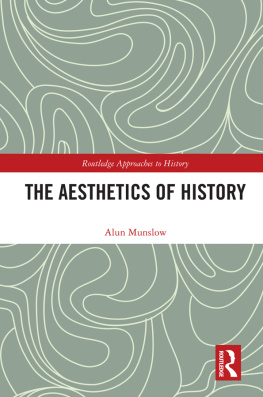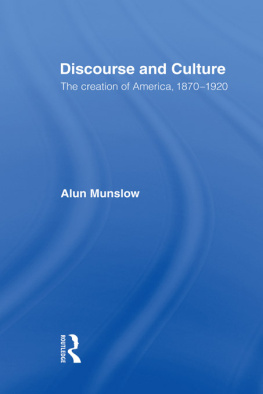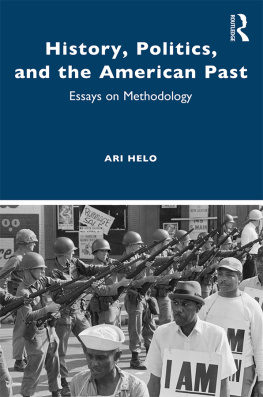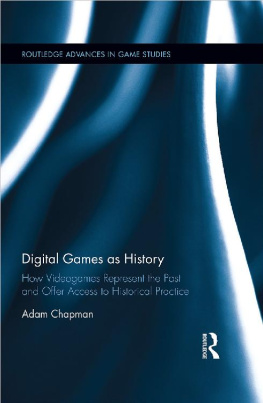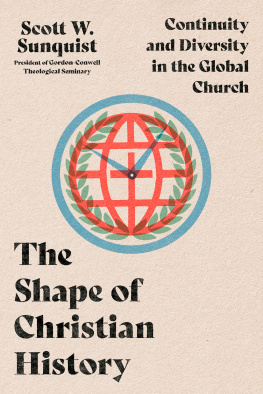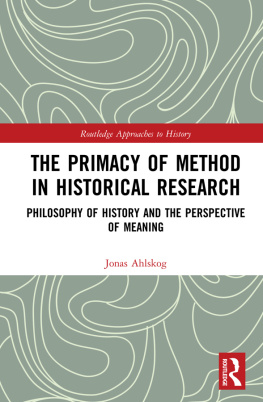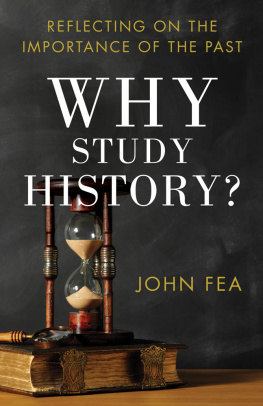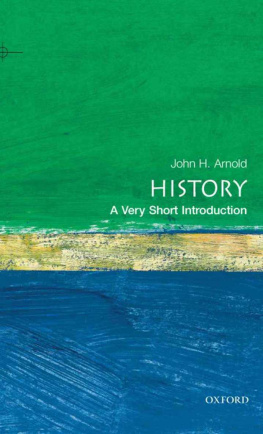The Aesthetics of History
This book offers an understanding and analysis of the aesthetics of historying through the specific concepts and process of the factional, factitious, fabricated, factious, factitive, factive, factualist, fictitious, fictive, and figurative. These concepts create the(ir) connection(s) between the past and history hitherto to rethink the nature of the historical past. There are many different available forms of histories that shape the minds of historians when they deploy their historical imaginations through the past(s) via their preferred history creations. For every historian and every history reader, there is a different experience of the history past aesthetic.
Alun Munslow is Professor Emeritus of History and Historical Theory at Staffordshire University and has held various professorial chairs.
Routledge Approaches to History
Cowrie Shells and Cowrie Money
A Global History
Bin Yang
A Personalist Philosophy of History
Bennett Gilbert
Historical Parallels, Commemoration and Icons
Edited by Andreas Leutzsch
Historians Without Borders
New Studies in Multidisciplinary History
Edited by Lawrence Abrams and Kaleb Knoblauch
Leopold von Ranke
A Biography
Andreas D. Boldt
Teleology and Modernity
Edited by Dan OBrien, Marius Turda, David Ohana and William Gibson
Historia Ludens
The Playing Historian
Edited by Alexander von Lnen, Katherine J. Lewis, Benjamin Litherland and Pat Cullum
The Aesthetics of History
Alun Munslow
For more information about this series, please visit: https://www.routledge.com/Routledge-Approaches-to-History/book-series/RSHISTHRY
The Aesthetics of History
Alun Munslow

First published 2020
by Routledge
52 Vanderbilt Avenue, New York, NY 10017
and by Routledge
2 Park Square, Milton Park, Abingdon, Oxon, OX14 4RN
Routledge is an imprint of the Taylor & Francis Group, an informa business
2020 Taylor & Francis
The right of Alun Munslow to be identified as author of this work has been asserted in accordance with sections 77 and 78 of the Copyright, Designs and Patents Act 1988.
All rights reserved. No part of this book may be reprinted or reproduced or utilised in any form or by any electronic, mechanical, or other means, now known or hereafter invented, including photocopying and recording, or in any information storage or retrieval system, without permission in writing from the publishers.
Trademark notice: Product or corporate names may be trademarks or registered trademarks, and are used only for identification and explanation without intent to infringe.
Library of Congress Cataloging-in-Publication Data
Names: Munslow, Alun, 1947 author.
Title: The aesthetics of history / Alun Munslow.
Description: New York : Routledge Taylor & Francis Group, 2019. | Series: Routledge approaches to history ; 31 | Includes index.
Identifiers: LCCN 2019032630 (print) | LCCN 2019032631 (ebook) | ISBN 9780367272739 (hardback) | ISBN 9780429295911 (ebook) | ISBN 9781000734058 (adobe pdf) | ISBN 9781000734126 (mobi) | ISBN 9781000734195 (epub)
Subjects: LCSH: HistoryPhilosophy. | Historiography.
Classification: LCC D13 .M844 2019 (print) | LCC D13 (ebook) | DDC 901dc23
LC record available at https://lccn.loc.gov/2019032630
LC ebook record available at https://lccn.loc.gov/2019032631
ISBN: 978-0-367-27273-9 (hbk)
ISBN: 978-0-429-29591-1 (ebk)
Typeset in Sabon
by Apex CoVantage, LLC
For Jane, as always
Contents
Over a number of years, I have increasingly thought of history not as a deconstruction of the past, as I had previously thought, but as a complex (usually a very complex) authorial creation. This is not to claim that the past is what historians (variously) want to believe about the reality of the past. No, to be clear, the past is the time before our perpetual present, and what I have long designated as the-past-as-history is not the same as the history of the past. Plainly, the past is accessible only in the form of those narrative(s) we choose to create about it. This is not to endorse the notion that we can invent the past as it suits us. The past was the past and obviously there is no point in denying the reality of the past. Only meretricious fools deny the reality of the past. The past is what the past was.
Nevertheless and unavoidably engaging with the past can be delivered in a variety of forms. These include the written and/or spoken and/or danced and/or built and/or many other forms that can legitimately claim to be a (re)presentation of the past. Almost regardless of its presentational form, no one, and obviously including historians, can claim that the past can be resurrected or resuscitated or revived as it actually was. It does no harm to accept that the supreme irony in doing history, then, is that the history can only be a substitute for a past. For every historian there is always a preferred history. History then is not the past. History is a substitute for the past authored in whatever form and content the historian wants. The historians narrative creation of the past, even if it is claimed to be the past as it actually was, remains to be a form of imitation or simulation. Hence, no history can legitimately be regarded as a substitute for the past. Of course, on balance historians can know what really happened in the past. Nevertheless, interpreting the available range of sensible possible meanings and explanations that historians contrive and create means that all histories almost invariably fail to produce the history of .
So, historians always end up striving to recreate and reconstitute the nature, meaning, and explanation of the contents of the past by organising, classifying, and systemising what happened in the past. Now, it is hardly news (I have noted it before) that historians process the ontic and the epistemic nature of the past. Those two terms are not as awkward as they sound. The concept of the ontic simply refers to the empirical stuff defined by historians. Thus, historians collate as the facts the descriptions which they create/created about the past. The epistemic then refers to the theory of how historians come to know what happened in respect of the knowledge of the past. And there is plenty of the past available that can be usefully turned into the historians preferred history.
Historians, like everyone else, deploy the simple mechanism of shaping the past by turning it into a (hi)story. The past, obviously, is just mush until it is processed into a history. However, turning the past into a description of what the historian believes to be previous realitythe past as it wasrequires that the reality of the past can be adequately offered as a truthful description of the past. Obviously, the past is not history and history is not the past. You can have one or the other. So, historians along with everyone else have to define their preferred topics and events in the past with the aim of discovering what they choose to believe is the history. For every historian there is always a history to be discovered back there and then. To discover the reality of the past historians (like everyone else) are required to shape and form past reality through the(ir) authorial mechanism. This process involves deploying concepts, theories, themes, and leitmotivs. Moreover, the past has to be fashioned and formed by concepts such as gender, culture, class, regions, war, peace, ideology, the rise and fall of industrial processes, art and aesthetics, cities, and so forth. The past is particularly unhelpful for historians because the past is and remains just stuff until the historian claims to have discovered the explanation and meaning of the nature of the past. But, obviously, the reality of the pastwhich cannot be sensibly denied given the available data and referencestill has to be processed back into what it was.

